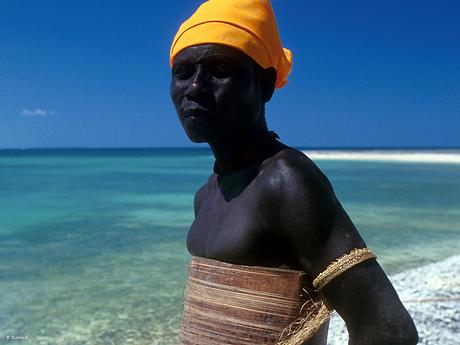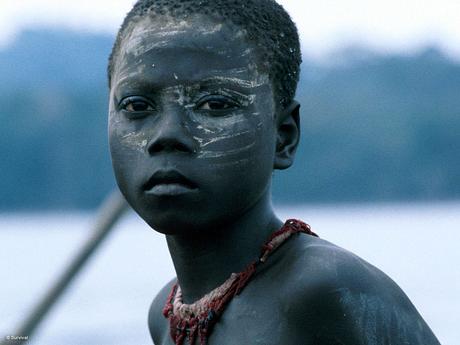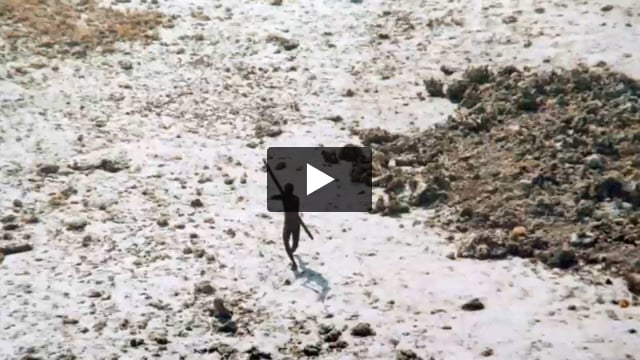Remote Jarawa tribe kill poacher – exclusive interview shows Jarawa denouncing poaching on their land
November 21, 2008

© Salomé/Survival
This page was created in 2008 and may contain language which is now outdated.
Two days after members of the remote Jarawa tribe attacked a group of poachers inside their reserve, killing one and wounding three, Survival today released exclusive footage of the Jarawa, taken during a recent investigation in India’s Andaman Islands.
Survival’s Andamans campaigner, Sophie Grig, who was investigating the impact of poaching on the 320-strong hunter-gatherer tribe, managed to obtain the first-ever filmed interview with the Jarawa, despite their isolation within their protected reserve. Grig met the Jarawa as they voluntarily came out of their forest to complain to local administration officials about the poaching.
The invasion of their land by poachers poses a serious threat to the Jarawa, who have only had regular contact with the outside world since 1998. Poachers risk bringing in diseases to which the Jarawa have no immunity, and are rapidly depleting the wild foods that the Jarawa are totally dependent on. Entry to the Jarawa reserve by outsiders is illegal without a special permit, but poaching is now widespread.
Sophie Grig said today, ‘The Jarawa repeatedly made it clear to me how upset they were by poachers invading their land – stealing their turtles, wild boar and other essential food. I heard many reports of poachers, both Burmese and local, going into the Jarawa’s reserve with impunity. I also heard alarming accounts of poachers sexually abusing Jarawa women and taking alcohol and tobacco into the reserve. Addiction to these substances would create a dangerous dependency for the Jarawa, who are still completely independent and self-sufficient.’
In September, frustrated by the invasion of their land by outsiders, a Jarawa hunting party captured two groups of poachers in their reserve, tied them to trees and then informed the authorities.
Survival’s director Stephen Corry said today, ‘The Jarawa have lived on their land, hunting in their forests and fishing in their creeks, for 60,000 years. But the number of poachers stealing their game has now become so great that the Jarawa see the real prospect of hunger for the first time. If the authorities don’t act fast to stop these poachers there will very likely be more such tragedies.’
Survival’s Andamans campaigner Sophie Grig is available for interview.
For more information please contact Miriam Ross at Survival International on (44) (0)20 7687 8734 or (44) (0)7504 543 367 or email [email protected]


